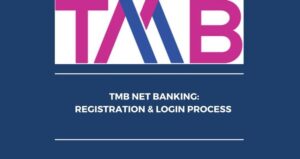DEAF: 2 Steps to Get Your Unclaimed Deposits from Banks

Miniature people standing on a pile of coins.
There is a growing amount of deposited funds lying unclaimed with financial institutions today. By the end of 2019, this number was over 25,000 crores, and grew to 33,000 crores by 2020. Unclaimed deposits refer to any deposits in savings or current accounts, FDs, recurring deposits, and all other forms of payment. According to RBI regulations, accounts and funds are deemed unclaimed if they have not been operative for ten years. When this happens, the unclaimed funds are transferred to the DEAF.
What is the DEAF?
DEAF is an acronym that stands for Depositors Education and Awareness Fund. This fund was created by the RBI (Reserve Bank of India) to accumulate all unclaimed deposits from various financial institutions. RBI regulations specify that funds lying in accounts that are inactive for over ten years should be transferred to the DEAF. Accounts are considered inactive if there are no transactions made from the account for at least two years. This doesn’t include the interest or credit you get periodically or any other transactions like the maintenance costs.
In such a situation, the financial institution typically contacts the customer via phone or email to update them on their account status. However, in most cases, this doesn’t work. Usually, people fail to update their contact information or are unreachable after such a long period. Thus, as a customer with an active account, you must keep your contact information updated at all times. With proper financial asset management, this situation doesn’t generally arise.
Consumers generally tend to open several financial accounts for the sake of convenience. It allows them several benefits, easy tracking, etc. However, without proper management, it’s hard to keep track of every account and detail. Plus, imagine if anything were to happen to the account holder for any reason. Their family would be left to tackle all the problems that arise without knowing about their real financial situation or the finer details.
Why Are Unclaimed Funds Growing?
According to RS Gandhi, former deputy governor of the RBI, there are two main reasons for the DEAF balance increase over the years.
- The unclaimed money continues to grow. People generally pass away without a legal heir, move abroad, or forget about their financial accounts. Thus, the money remains untouched and unmoved for years and eventually moves to the DEAF.
- The funds that are lying untouched in these accounts are still accruing interest. Financial institutions tend to use deposits to invest in high-yield securities. The RBI also continues paying interest on deposits. This makes it even more crucial for you to claim your money.
How to Claim ‘Unclaimed’ Deposits from a Financial Institution?
If you have not made any transactions to an account for about ten years, it’s a safe guess to say that you are unaware of any money being transferred to the DEAF from that account. According to RBI regulations, all financial institutions need to mention the true unclaimed amounts of funds on the official company website. If you are trying to claim your funds back, you can visit the site to check your details. The next step would be visiting one of the institution’s branches that are close to your current location. As you do so, please carry the set of documents given below:
- Claim form, filled and signed
- Deposit receipts and passbook
- KYC (know your customer) details and documents
These financial documents are mandatory and will help simplify the process of claiming your funds back. With financial asset management, you can keep a digital record of your documents handy at all times.
If you are claiming deposits as a legal heir or a nominee for a deceased person, there is an additional set of documents required if you want your financial institution to fulfill your claim.
- Receipts of deposits into the account
- Self-identity proof (government identification documents)
- A legitimate copy of the deceased account holder’s death certificate
Once the legitimacy of all the necessary documents has been verified and they have been proven genuine, your financial institution will release the funds back to you. You can then claim these funds back.
Suppose you have been trying to get unclaimed funds back from an account that you created before digital banking came up, you could face some issues. At such institutions, everything might still be relatively traditional and your account might have old-school rules and regulations. In this situation, you should visit either the closest branch or the original branch where you made your account. Either of these places will assist you with your claims. You can also choose a platform like EasyInherit to help you seamlessly go through these processes.








